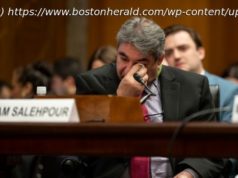News Analysis Former Trump campaign adviser George Papadopoulos disputed a key claim in the final report by special counsel Robert Mueller about the origin of…
News Analysis
Former Trump campaign adviser George Papadopoulos disputed a key claim in the final report by special counsel Robert Mueller about the origin of the FBI probe into Trump-Russia connections in 2016.
The report claims Papadopoulos talked to a certain foreign official four days earlier than he says he did—a seemingly small discrepancy that has significant implications and appears to be an effort to boost the credibility of the official story, which has been buckling under the weight of contradicting evidence.
As the official story goes, Papadopoulos was invited to meet Alexander Downer, Australia’s ambassador to London, in an upscale London bar in May 2016.
“During a night of heavy drinking,” as The New York Times put it in a December 2017 story based on information leaked by “four current and former American and foreign officials,” Papadopoulos “opened up” to Downer “about his contacts with the Russians.”
“Papadopoulos had suggested to a representative of that foreign government that the Trump Campaign had received indications from the Russian government that it could assist the Campaign through the anonymous release of information damaging to Democratic presidential candidate Hillary Clinton,” the Mueller report says.
If true, it would suggest that Russians told the campaign well in advance of the emails allegedly hacked by Russians from the Democratic National Committee, which were released by Wikileaks later that year, starting July 22.
The “foreign government,” presumably Australia, “conveyed this information to the U. S. government on July 26,2016,” the report states.
And it was this information that “prompted the FBI on July 31,2016, to open an investigation into whether individuals associated with the Trump Campaign were coordinating with the Russian government in its [election] interference activities,” the report reads.
The report makes clear that Papadopoulos was prone to exaggerating his claims and that what “indications” there were about any “damaging” information, it was him personally who had received them. There’s no evidence he told other officials in the campaign.
“The investigation did not establish that members of the Trump Campaign conspired or coordinated with the Russian government in its election interference activities,” the report said.
The report, however, makes a crucial claim: Papadopoulos spoke to the “representative of a foreign government” on May 6,2016.
This is false, according to Papadopoulos, who spoke to The Epoch Times via direct message on Twitter.
Papadopoulos acknowledged he received information about Russians having “dirt” on Clinton in the form of “thousands of emails.” He told the FBI that a Maltese academic named Joseph Mifsud told him this in London on April 26,2016. Papadopoulos was later sentenced to two weeks in prison for downplaying his contacts with Mifsud when questioned by the FBI.





